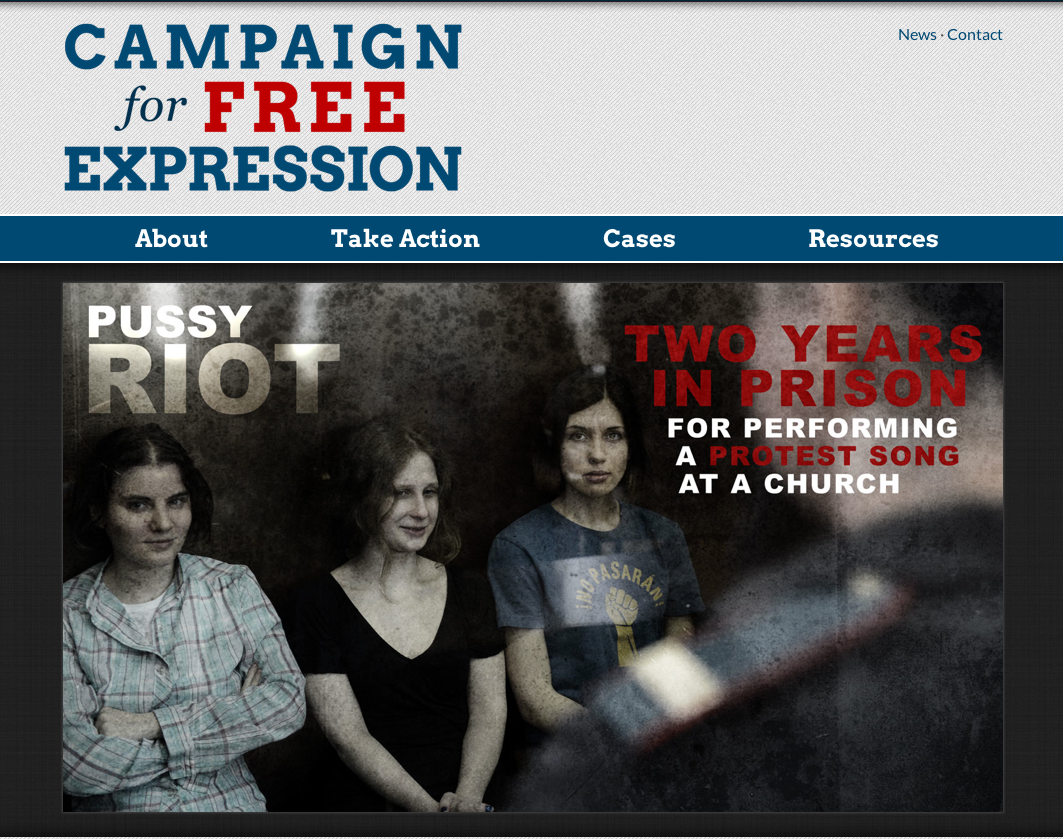Amy talked to Michael De Dora about what he does as CFI’s Director of Public Policy and UN rep. It’s good that she did that, because what he does is important, and he does it. (No need for self-mockery about 1st world probs here.)
Many people in the secular community seem unaware of the extremely important work that Michael De Dora and CFI are doing. They are literally on the front lines battling to protect women’s reproductive rights. They are working to ensure the separation of church and state here at home. They tirelessly rage against the oppressors of the world so that all people may eventually have freedom of religion, non religion and freedom of expression. They fight to keep religion out of the classroom and they fight to keep government funding from being funneled from public schools into religious schools. Care about freedom of speech? Then you should care about CFI’s newly launched Campaign for Free Expression.
Huh? What’s that got to do with skepticism?!
Hey, you know what? Skepticism isn’t all CFI does. How about that.
You probably knew that. I think some people don’t know that though. I mentioned the question I got after my talk, asking why I drag feminism into skepticism, when I hadn’t been talking about skepticism at all. Skepticism is one thing but it’s not the only thing, and CFI isn’t CSI.
Amy’s on it.
What?
Not enough?
Too much social justice and not enough traditional skepticism for ya?
Well, guess what?
They even educate local government on the dangers of alternative medicine and fight to stop tax funding and insurance coverage of risky or unfounded treatments. Oh, and yeah, climate science is on their list too.
See? It’s not the only thing, but it is one thing. Deep breaths, people.
Michael’s on it, CFI is on it, they’re all on it. It’s what they do.
Could you please explain the mission of CFI’s Office of Public Policy and your active role in that policy?
The broad mission of CFI’s Office of Public Policy is to push governing bodies to enact public policies based on secular values, humanist ethical principles, and, where possible, scientific evidence. Essentially, we combine the secular and humanist worldviews, and the scientific worldview, and apply the combined perspective to policy debates. I think that this multi-faceted approach results in some very compelling arguments.
Got that? It’s a multi-faceted approach. Secular values are part of it. Secular values are what my talk was about. I’m allowed to do that.
Free expression is one of those secular values.* CFI’s OPP works to support it.
Most recently our focus has been on protecting and defending the rights to freedom of religion, belief, and expression. Historically, these rights have been fragile, and they have come under widespread attack the last couple months – especially after the release of the Internet video Innocence of Muslims, which caused protests in the Middle East and Northern Africa.
One of our main focuses on this issue has been to shed light on the growing number of cases of people being punished simply for practicing a different, or no religion, or speaking their mind. Perhaps the most prominent case, at least for the secular community, is that of Alexander Aan, the Indonesian fellow who is in jail for posting on Facebook that he is an atheist.
In order bring attention to Aan and others like his, we just launched the Campaign for Free Expression, which seeks to rally broad support for the right to freedom of speech.
 In concert with that, we have been working at the United Nations to fight attempts by the leaders of several countries to implement resolutions and agreements that would in effect restrict freedom of expression. And we have been working with the State Department to put diplomatic pressure on countries that do not respect freedom of expression. The idea is that the more social support you build for a position, the more feasible political action becomes.
In concert with that, we have been working at the United Nations to fight attempts by the leaders of several countries to implement resolutions and agreements that would in effect restrict freedom of expression. And we have been working with the State Department to put diplomatic pressure on countries that do not respect freedom of expression. The idea is that the more social support you build for a position, the more feasible political action becomes.
How do they decide what issues to take on?
We decide which issues are important largely based on our mission. We will jump on an issue if it threatens the separation between church and state, is unethical from a secular humanist perspective, or is either unaligned or even opposed to current science.
Sounds sensible to me.
*No, that doesn’t mean people should call women they dislike fucking cunts, or non-white people they dislike fucking niggers, or Jews they dislike fucking kikes, or gay women they dislike fucking dykes, or gay men they dislike fucking faggots. It means doing so should not be a crime, or punished by the state.**
**Unless it adds up to harassment or incitement. Yes it makes a difference. A playful slap is one thing, a beating is another.




(This is a syndicated post. Read the original at FreeThoughtBlogs.)



